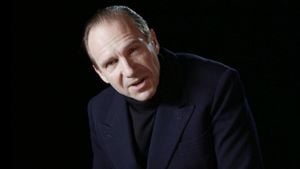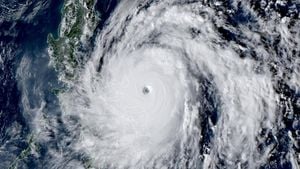Donald Trump's upcoming inauguration, set for January 20, 2025, has already become the focal point of political discussions as he prepares for his return to the White House. With two months still to go until the big day, Trump has swiftly moved to fill key roles within his new administration, signaling his intentions for what promises to be another tumultuous term.
While some may still be wrapping their heads around the fact of Trump regaining the presidency, he’s wasting no time showcasing his influence by announcing dozens of appointments. Just early in his first presidential transition, he had previously named only three significant positions including the chief of staff, attorney general, and ambassador to the United Nations. This time, he has already filled more than ten slots, illustrating his preference for quick, strategic decisions.
On inauguration day, Washington, D.C. will once again be the center of the political universe as thousands gather to witness the ceremony. Notably, Trump's inauguration marks not just the celebration of his second term but also serves as a potential flashpoint for both supporters and detractors. The political climate surrounding this event is charged with anticipation, trepidation, and above all, division.
Many are curious how Trump’s return will influence both local and national politics, especially considering the controversy surrounding his previous administration. Trump’s Cabinet choices reflect longstanding ties to his policies and philosophies, as he focuses on bringing back many familiar faces.
Key Appointments Made by Trump
Among the first appointments, Trump has named Susie Wiles, his senior campaign advisor, as the chief of staff. This historic move makes Wiles the first woman to hold this influential position. Wiles is known for her strategic playing of the political arena, benefiting Trump's original campaign.
Another significant choice is Rep. Matt Gaetz from Florida, nominated to take on the role of attorney general. Gaetz has long been vocally opposed to the Justice Department, making him both a controversial figure and perfect fit for Trump’s vision of justice. This reflects Trump's pattern of placing loyal supporters who are willing to challenge traditional governance.
Marco Rubio, the Florida senator, has been tapped for Secretary of State. His prior experience with foreign relations should play well as he navigates the challenges of U.S. diplomacy, especially under the scrutiny of Republican and Democratic critics.
Trump continues to keep the spotlight with nominations like Tulsi Gabbard as Director of National Intelligence, and Stephen Miller, who is known for his hardline views on immigration, has been chosen for deputy chief of staff for policy. These strategic decisions demonstrate Trump’s commitment to enforcing his agenda right from the start.
While many welcome these announcements, others warn of potential backlash from opposition groups. Some analysts are concerned Trump’s restart could lead to disagreements within Congress, where parties are grappling for power after midterm elections.
Political Climate Ahead of 2025
The political climate entering 2025 is not easy to navigate. Experts like Norman Ornstein, a veteran political scientist, are already calling the upcoming election and its aftermath “the most significant and destructive” period the United States has faced. Despite Trump’s previous presidency being marked by significant controversy, Ornstein and others worry about the erosion of democratic guardrails—particularly if Trump pursues his authoritarian leanings.
Ornstein voiced concerns, stating, “We have not elected a president who has made clear during the campaign he will be a dictator on day one.” This notable statement underlines fears about how Trump's governance strategy may manifest over the next four years.
With such apprehensions surrounding Trump’s possible return to the White House, some wonder whether the country is equipped to handle the divisions and potential discord his presidency may ignite. The protests, both for and against, will likely intensify as January draws near.
Anticipation Leading to the Ceremony
Preparations for the inauguration day itself are also under scrutiny. Traditionally, the ceremony involves pomp, pageantry, and numerous security measures—especially following the heightened risk surrounding Trump’s supporters and protestors. Nobody expects this year's ceremony to be anything less than contentious.
The January event’s organization is flooded with uncertainties, but one thing is clear: it promises to be monumental both for the United States and Trump’s political narrative. While Washington, D.C. reverberates with the echoes of past administrations, Trump's imminent return signifies another chapter filled with unpredictability.
The spectacle of the inauguration will likely draw attendees and spectators lining the National Mall. Among supporters, there’s jubilation and excitement at the thought of Trump's agenda continuing. This is juxtaposed sharply by fears from detractors, who still view his presidency as fraught with consequences for governance and civil rights.
For many, the build-up to January 20 is another episode of the American political drama, heavy with personal stakes. Marching through various layers of political allegiance, people remain divided across the board, debating Trump’s policies and the future the nation could forge under the former president.
All eyes will be on Washington come inauguration day, leaving individuals, parties, and political analysts alike pondering where the country will head next. Whether Trump's return heralds hope or staunch division remains to be seen and debated.
Kinsey Crowley is set to cover the latest developments and political nuances leading to Trump’s 2025 inauguration, as this drama develops both inside and outside of Congress. Stay tuned for more updates as we transition to what lies ahead for American politics!



